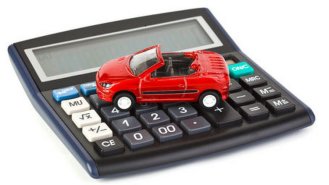
There are many benefits to paying off a car loan early, and depending on your finances, it may be the right thing for you to do. You can pay your loans off early by making additional monthly car loan payments, increasing the amount of principal you pay each month or paying a large lump sum, but is it the right thing to do? Not all loans can be paid off early so you want to be sure that there isn't a penalty for early payoff. If there is, you may actually end up costing yourself more money in the long run. Let's take a look at the advantages of paying off your loan early.
Paying off auto loans early can be beneficial if you have the money for it, but your personal financial situation will determine what will work for you and what won't.
Looking to buy another car? Start Here >>
There are dangers associated with paying off a car loan early. The loan rate is based on the retirement of the debt over time, usually between 36 to 60 months. This calculation takes into account the amount of interest that the lender will earn during the loan period. Paying the loan off before the end of the term deprives the lender of that future income stream.
Present Dollars versus Future Dollars
There is an argument to be made regarding the value of money today versus some future point. For example, which is more valuable, $1 today or received 2 years from now? Based on the time-value of money, the answer is $1 today. The effect that inflation, a general rise in prices, has on money over time reduces its purchasing power. At an annual rate of inflation of 10%, a dollar received 2 years from now is worth 82 cents.
This makes sense however the way the loan is financed. It takes into account the affect of inflation, thus inflating the payment over time. The larger portion of the payment in the early years is the growth or interest, and over time, the principal amount. Paying the loan back early results in the deprivation of that growth for the lender.
Lump Sum Payment
Making a lump-sum payment does not make sense because of the finance charges involved with the loan. A person with the ability to make a lump-sum payment for the purchase of vehicle should have delayed the purchase decision until such time that they could simply buy the vehicle with cash.
Prepayment Penalties
To account for early payment, such as a lump sum, lenders will impose an early payment or prepayment penalty. This penalty is equal to the opportunity cost loss for the lender by receiving the loan amount earlier than anticipated. It may seem desirous from the borrower to pay a loan off sooner, but in the end, it may end up costing more.
Alternative to Early Payment
An alternative to incurring a prepayment penalty by paying the loan early is the use of a defeasance account. This account allows you to deposit the full value of the loan into a separate account and through a systematic monthly withdrawal, the money in defeasance will pay off the debt. The lender benefits by knowing that the loan proceeds are in safekeeping and that their earning schedule is uninterrupted. You benefit because the account frees up the debit balance and improves your credit rating.
Looking to buy another car? Start Here >>
If you're looking at paying off a car loan want to figure out the best strategies for saving money in the long run, your best bet is to look at the interest rate and overall payments, not just the size of the monthly payment. Dealers and other financiers like to do a little sleight of hand to convince you that making "low payments" is a winning situation, but with a closer look, you'll see that there is a right and wrong way to set up a car loan agreement.
Overall Best Way to Pay Off a Car Loan
The best way to pay off car loans is simple: borrow as little as possible, and pay it off as soon as possible. Doing this cuts way down on the interest that you pay over the term of the loan. The more you pay up front, the less you have to borrow, and the less you will be paying interest. By the same token, if you receive a lump sum of money after the deal is made, you'll want to pay off the car and keep more money in your pocket for future purposes.
Exceptions to the Rule: Car Loans and Windfalls
One exception to the general rule is when you know for sure that you'll be getting a lot more money some months after the car financing agreement is made. With some kinds of "balloon payments" and similar deals, you might be able to get a lower interest rate for up front payments. However, this is only a good deal if you can pay off the car loan balance before higher interest rates kick in. Otherwise, you're best off going with a large down payment and a deal that includes no prepayment penalties.